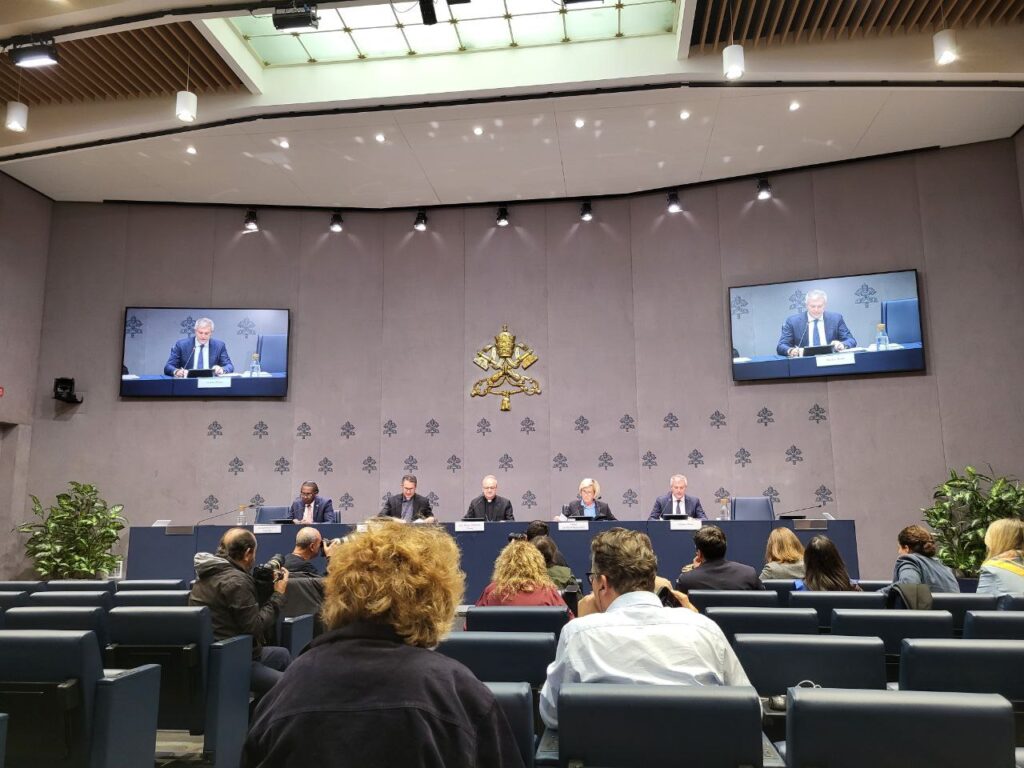«The Church’s enduring response to abuse requires more than structural reforms: it demands
active participation of all, at all levels of ecclesial life.» This could be one of the key phrases of the second Annual Report on Church Policies and Procedures for Safeguarding . In its comprehensive and detailed Report, the Pontifical Commission for the Protection of Minors documents its findings and recommendations for 2024, thanking Pope Leo XIV for his full support in this work.
A second key phrase could be this: «Victims should be central to our priorities.» For this reason, the direct listening to the victims and the survivors of abuse has been expanded in this second report. «Al di là del ruolo limitato e spesso insufficiente del risarcimento finanziario, in un approccio integrale alla riparazione sono fondamentali strumenti di riparazione come i seguenti:
- assurances of welcoming listening centres for victims /survivors to be heard and believed by Church authorities
- the provision of professional psychological support services
- public acknowledgements and apologies
- proactive and transparent communication with victims/survivors to provide timely updates on their cases
- the inclusion of victims /survivors in the development of the Church’s safeguarding policies and procedures.»
During the presentation of the Report to the press, emphasis was placed on the ongoing dialogue between the Commission and the bishops’ conferences around the world, focusing primarily on prevention, transparency and applicable protection procedures. The availability of safe spaces is important in order to manage situations in a preventive manner.

The cultural delays in many countries and the resistance to addressing situations and listening to people who have suffered abuse have not been concealed. Professionalism and structured dialogue are needed in local services, because victims or survivors often feel that they are not being adequately accompanied and report a lack of respect. There is also a need for a clearer canonical procedure for the dismissal and/or removal of Church leaders or staff in cases of abuse or negligence. However, there is widespread awareness of these delays and serious efforts are being made to acquire the necessary skills.
With regard to communication, this is a critical issue highlighted above all by victims, who always recall the suffering caused by the lack of transparency at the level of the universal Church and the local churches. The importance of developing training and information programmes for families on educational rights was also noted.
In the Report, the Commission launches a study on lay associations, in particular with the development of a pilot methodology to assist the Dicastery for Laity, Family and Life in accompanying aspects regarding safeguarding within these associations. This methodology is illustrated in the Report, together with an initial application in the case of the Focolare Movement.
« The Commission welcomes the important safeguarding reforms recently enacted by the Focolare Movement. While noting specific recommendations, the Commission also highlights certain particularly good practices, including the establishment of an Independent Central Commission for handling cases of abuse within the Focolare Movement; a Communication Policy concerning sexual abuse of children and vulnerable adults; and Guidelines on support and financial reparation in cases of sexual abuse.»
Among the improvements requested and the recommendations: external review and control procedures and a systematic independent review plan, at the same time taking into account the work of the Supervisory Board, which is however a useful provision within the Movement’s safeguarding system.
The inclusion in the new Procedures of a clause stating that victims/survivors should be proactively and affirmatively informed of their right to report their case to the civil authorities; to harmonize the Movement’s diverse and fragmented policies into a single, coherent document, although positively welcoming a consolidated document which is to be published shortly.
The Focolare Movement expresses its sincere gratitude for the support received from the Commission for the Protection of Minors, which over the past year has followed the Movement’s work on formation, prevention and the creation of a system of rules and procedures, offering its expertise. The work is now continuing with the study of the recommendations proposed by the Commission in this report; some will be implemented in the coming months and will be reported in the next Report on Safeguarding in the Focolare Movement, which will be published by February 2026.
Stefania Tanesini




0 Comments